Industry-specific experts are the backbone of knowledge for many organizations. They deliver a lot of value, and it pays off for companies to support their progress as experts. But what about HR/L&D staffers? With human resource functions constantly growing in importance, organizations should think about building experts in that department as well.
Preaching to the Choir
The human resources department has never been more critical to the success of organizations than now. The past few years have given HR professionals multiple challenges to deal with, such as:
- Remote working during COVID-19
- The Great Resignation
- Quiet Quitting
- The rapid obsolescence of skills
In turn, HR people have a higher profile than ever, yet this is a double-edged sword. They have more prominence, but also need to back that up with a stronger set of skills. Such a challenge requires abilities of the highest level, namely, those that belong to an expert.
HR’s Need for Industry-Specific Experts – But What Kind?
People in the human resources department have a dual role. They must be up to date with all functions that are specifically related to their tasks, including:
- Hiring
- Employee administration
- Compensation and benefits
- Employee relations
- Performance analysis
- Learning and development
At the same time, they should also understand the industry in which their company is involved. HR is not the same in every organization. Contrast, for instance, the requirements of a multinational construction company with thousands of workers to a technology startup with perhaps 50 employees. The nature of the people in each company is very different, as are employment and performance issues.
So an HR professional who wants to become an expert can face a challenge: to focus on human resources functions, or on the industry to which their company belongs. Of course, in the long-term, it is possible to develop expertise in both areas. But in the short-term, a choice needs to be made.
The Impact on L&D
An example of the issues caused by lack of industry-specific expertise seems to indicate which way the HR professional should go.
Let’s say you are an HR staffer, employed by an IT firm, and working on a career pathing initiative with various junior employees. Based on their input, and that of their managers, you need to find business analysis courses for them. But what kind of business analysis do they want? A business analyst might work for the finance department, or the strategy department, or the IT department. Some business analysts work with data, others generate data. It’s only by understanding what each employee does that you can figure out what kind of course they need.
Perhaps a few phone calls will clear up the issue. But now imagine that scenario playing out across the workplace, for employees at different hierarchical levels, and in several departments. Without knowledge of the role-related terminology, or the function of the employee, HR can face a situation where they are allocating the wrong kinds of courses to their workers.
The Concept of T-Shaped Skills
“T-shaped skills” describe a professional who has deep industry expertise in one area but also has a breadth of skills in other, supporting areas. By acquiring a T-shaped skill set, employees strike a balance between being a generalist and a specialist.
For HR, the advantage of T-shaped skills is clear. Such an employee can fulfill duties across the range of human resources-specific tasks as listed above, while gaining more knowledge of their organization’s industry. Then, when the organization requires an industry-specific expert, they can step in. At the same time, other HR people who have focused on their professional function (and not the industry) can cover for the expert to some extent when the expert’s abilities are limited.
Large organizations can even consider building expertise for HR tasks by assigning areas to several people in the department. But don’t forget that not everyone on the HR team can become an industry-specific expert. In keeping with the best practices of creating deep industry expertise, the candidate for related training programs must have both the ability and the interest to develop their knowledge over years.
A Note on Hiring Practices
Some organizations recruit HR professionals who are generalists. They are hired based on their experience as human resources employees in other companies.
However, for organizations that are interested in developing experts (or a group of them) with knowledge of the specific industry, the process starts during the recruiting phase. Those on the hiring team should look for HR professionals with experience in companies that are similar to their own.
Can Growthspace Clients Become Growthspace Users?
Of course they can. Any HR/L&D professional who is interested in building their own abilities can simply apply the power of the Growthspace platform to developing expert-level skills. With Growthspace, any difficulties in finding top-notch coaches, mentors, or trainers in any field is basically eliminated. Growthspace’s powerful expert search algorithm boils your quest down to a few clicks.
Ready to turn insights into impact?


















